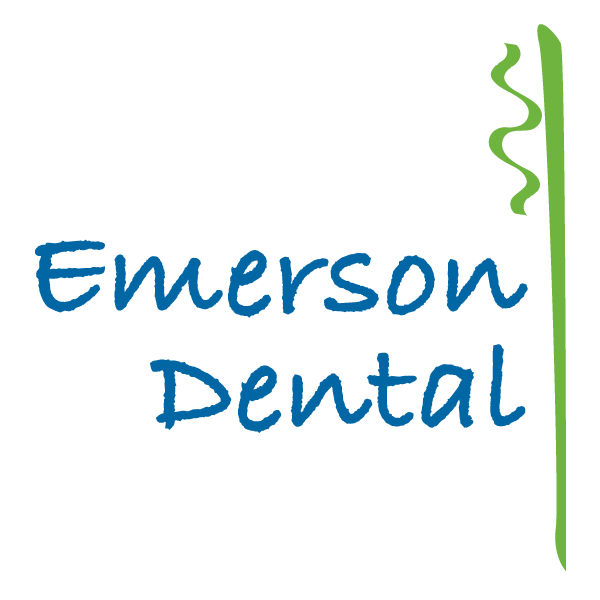TMJ Treatment in Westford & Bedford

Emerson Dental provides TMJ treatment in Westford & Bedford, MA. Call 978-399-0017 to learn more and schedule your appointment.
What is TMJ?
Temporomandibular joint disease, or TMJ, is a disorder of the joint where the lower jaw attaches to the skull. The temporomandibular joint normally operates like a sliding hinge between the skull and the jawbone. In people with TMJ disorder the joint becomes misaligned. This is most often due to a structural condition resulting from misaligned teeth. The muscles pull the jaw out of alignment during chewing in an effort to balance the bite. Excessive chewing and teeth grinding or clenching can exacerbate the problem.
TMJ is a serious, but often overlooked, progressive disease. Without treatment, it could eventually cause severe damage to the jaw.
What are the Symptoms of TMJ?
TMJ can cause a variety of symptoms including, but not limited to:
- Popping or clicking in the jaw
- Sore jaw muscles
- Unusual tooth wear
- Pain in the cheek or face
- Headaches or earaches
- Difficulty chewing
If you have any of these symptoms of TMJ, seek treatment to prevent the condition from worsening.
How is TMJ treated?
The best treatment for TMJ is to eliminate excessive muscular activity. This is done by creating a bite that is in harmony with itself and with the joint, allowing the muscles to relax naturally. This eliminates the pain and stops the progressive destruction of the joint capsule.
Mild TMJ can often be treated with conservative options such as eating soft foods, avoiding extreme jaw movements, taking mild anti-inflammatory medications, and icing the joint. The most severe cases may require surgery. Most cases fall somewhere in the middle, with a treatment plan that includes a combination of conservative methods such balancing the bite or using a bite splint, which is also referred to as an night guard or occlusal guard.
Frequently Asked Questions About TMJ
What is the difference between TMJ and TMD?
These terms are often used interchangeably, but they are not the same. TMJ is simply the acronym for the temporomandibular joint. TMD stands for temporomandibular disorder, which refers to the condition where the joint is misaligned.
Who should I see about TMJ disorder?
Many people with jaw pain are not sure who to see about it, their dentist or their doctor. If you’re experiencing symptoms of TMJ, your dentist is the one to call to schedule an appointment. Dentists specialize in treating both the teeth and jaw, as these parts work together.
How can I prevent TMJ disorder?
If you’ve suffered from TMJ disorder in the past and you want to keep it from recurring, there are some things you can do:
- Refrain from clenching your jaw.
- Don’t chew gum or constantly munch on chewy foods.
- Wear a mouthguard at night.
- Seek orthodontic treatment to align your teeth and bite pattern.
Can dental work or surgery cause TMJ disorder?
Having a lengthy dental procedure where your mouth is held open for a long period of time can lead to TMJ disorder. The jaw muscles can be overworked and become inflamed. Major or even minor surgery where a breathing tube is used can also lead to TMJ disorder because the mouth is held open for a long period of time.
Does TMJ cause ear pain?
Sometimes pain in the jaw from TMJ disorder can feel like an earache. Patients will even seek treatment for an ear infection when that is not the actual problem. If you have ear pain that is accompanied by other TMJ symptoms or that gets worse or better when you move your jaw, it is most likely not an ear infection.
Does dental or medical insurance cover TMJ treatment?
If any insurance coverage is available for TMJ disorder, it is typically medical insurance. Even though the condition is usually treated by a dentist, dental insurance does not usually cover it. Whether or not medical insurance will cover your TMJ treatment depends on your provider and plan. Contact your medical insurance provider to inquire about your coverage.
If you’re experiencing symptoms of TMJ disorder, call 978-399-0017 to schedule an appointment at our Westford office or 781-394-9213 for our Bedford office.
